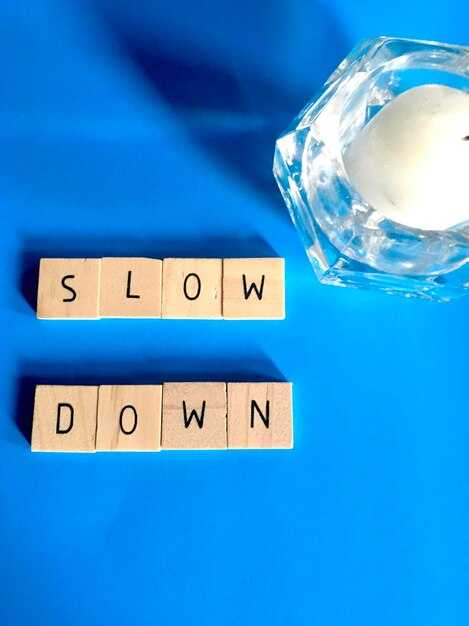You don’t have to express gratitude for things people are simply expected to do — that seems reasonable, right? The trouble with that line of thinking is that it can lead you to overlook the quiet efforts your partner makes. I personally fall into this trap with Emily; I often fail to thank her for the many ways she shows love because, in my mind, those actions have been relegated to the “normal” column. I want to challenge you to reflect: what actions have you stopped acknowledging because you consider them merely the baseline? Let me illustrate. Suppose, purely for argument’s sake, that feeling valued for me meant coming home to a tidy house and a warm meal. Imagine Emily is overloaded with work and the kids are wearing her thin, yet she scrambles every evening to clean up and get dinner on the table. When I walk in, do I register the extra effort she put in, the sacrifices she made for my comfort? Often I don’t — I just notice a clean house and a hot meal, which I unconsciously treat as how things ought to be. So I don’t thank her for meeting what I perceive as the standard. That’s a real problem, because we’re quick to criticize when expectations aren’t met, yet slow to applaud when they are. We excel at airing grievances, but frequently neglect to celebrate the things that are done right. You have a choice: either foster a culture between you where both of you actively look for chances to acknowledge and appreciate one another, deliberately noticing how your partner shows up, or allow the default tendency — underappreciation — to run the relationship. Unspoken appreciation does nothing; it benefits no one. Worse, failing to voice gratitude can come across as entitlement, ingratitude, or indifference. Don’t believe me? I dare you to check — ask your partner how they interpret your silence. I know some of you will push back: what if my partner doesn’t seem to do anything special for me — how am I supposed to thank them for nothing? First, that situation usually signals that you need emotionally safe conversations about feeling neglected, and if you can’t have those yet, that’s a larger issue to address. For those who can talk, the next step is clear: align with each other. Ask your partner to name three concrete things — big or small — that would make them feel loved this week. Don’t be vague; “help more around the house” is too imprecise. If their love language is acts of service, they might want you to take the dishes every night, or consistently handle a specific task. If they need reassurance, they may ask you to affirm that you’re still attracted to them and to show it in clear ways. Then follow through reliably. When you see your partner making those efforts, acknowledge it — say thank you and mean it. People thrive on being recognized for what they do well, and when our partners prioritize us, it’s more than just a baseline requirement — it’s a gift, not something to be taken for granted. We should be expressing gratitude for it on an ongoing basis.
Here are simple, practical ways to build that culture of appreciation so it becomes habitual rather than occasional:
- Be specific when you praise. Instead of “Thanks for doing stuff,” try: “Thank you for taking the kids to soccer tonight — that gave me a chance to finish work and relax for an hour.” Specificity shows you noticed both the action and its impact.
- Create a short ritual. Spend two minutes each evening to name one thing your partner did that day you appreciated. Make it a habit—rituals turn intention into practice.
- Use multiple channels. Not every appreciation must be spoken. Leave a short note, send a text midday, make a cup of coffee with a sticky note that says “I noticed.” Small tokens reinforce the message.
- Keep an appreciation list. Once a week, each partner writes three things the other did that mattered. Share them aloud. This builds a record of positive contributions and counters the brain’s negativity bias.
- Ask for clarity when needed. If your partner says they want “help more,” ask: “Which task would you like me to take on every day this week?” Replace vague requests with actionable items.
- Match gratitude to personality. Some people prefer public acknowledgment, others prefer quiet thanks. Ask how they like to be recognized and honor that preference.
- Balance appreciation with honest feedback. Gratitude doesn’t mean ignoring problems. Pair appreciation with constructive conversation on what needs to change, using “I appreciate X; I also need Y.”
- Repair quickly when appreciation is missed. If you realize you didn’t thank your partner, apologize briefly and acknowledge what you missed. A timely “I should have said this earlier — thank you for…” goes a long way.
Sample phrases you can use when acknowledging your partner:

- “I noticed how you stayed up late helping the kids with homework — thank you, that made this morning calmer.”
- “Thank you for handling the dishes tonight. It gave me time to recharge, and I really appreciate that.”
- “I appreciate the way you listened to me earlier. It made me feel understood.”
- “You handled that difficult call so well; your calm helped me not worry.”
If you find yourself thinking “there’s nothing to thank them for,” treat that as important information rather than a dead end. That perception often signals distance, unmet needs, or misaligned expectations. Try this short alignment exercise:
- Each partner writes three concrete, achievable things that would make them feel loved or supported this week.
- Exchange lists and pick one item from each list to commit to doing reliably.
- Agree how you’ll acknowledge the effort when it’s done (a thank-you text, a hug, a verbal acknowledgment at dinner).
Finally, what to avoid:

- Don’t make appreciation transactional or conditional (“I’ll thank you if…”). Appreciation is recognition, not a bargaining chip.
- Avoid backhanded compliments or pairing thanks with criticism (“Thanks for making dinner, but next time…”). Keep the gratitude pure first; address improvements separately.
- Don’t pressure yourself to be perfect. Sincere, even small, acts of recognition are better than none.
Building a culture of appreciation takes attention and repetition, but it compounds quickly: noticed effort leads to felt value, which leads to more motivated caring. Over time, that cycle becomes part of the relationship’s fabric instead of a fragile ornament. If you start small, stay specific, and make acknowledgment habitual, you’ll be surprised how much warmth and cooperation it returns.


 A Culture of Appreciation is Essential in your Relationships">
A Culture of Appreciation is Essential in your Relationships">

 What Makes a GREAT Relationship? || How to Build a GREAT Relationship">
What Makes a GREAT Relationship? || How to Build a GREAT Relationship">
 How To Respond To Rude Comments Without Losing Your Cool">
How To Respond To Rude Comments Without Losing Your Cool">
 My partner WON’T go to Counseling.">
My partner WON’T go to Counseling.">
 The Secret Bond That Ties Avoidants To One Person Forever | Jordan Peterson | Motivational Speech">
The Secret Bond That Ties Avoidants To One Person Forever | Jordan Peterson | Motivational Speech">
 There’s Something Appealing About Partners Who Disappoint">
There’s Something Appealing About Partners Who Disappoint">

 You CAN’T have Intimacy without THIS.">
You CAN’T have Intimacy without THIS.">
 What Happens to Avoidants When You Stay Silent Longer Than They Expected | Mel Robbins motivational">
What Happens to Avoidants When You Stay Silent Longer Than They Expected | Mel Robbins motivational">
 Reciprocated Validation">
Reciprocated Validation">
 Why You Become Anxious & Clingy: The Avoidant’s ‘Interest Trap’ Explained.">
Why You Become Anxious & Clingy: The Avoidant’s ‘Interest Trap’ Explained.">